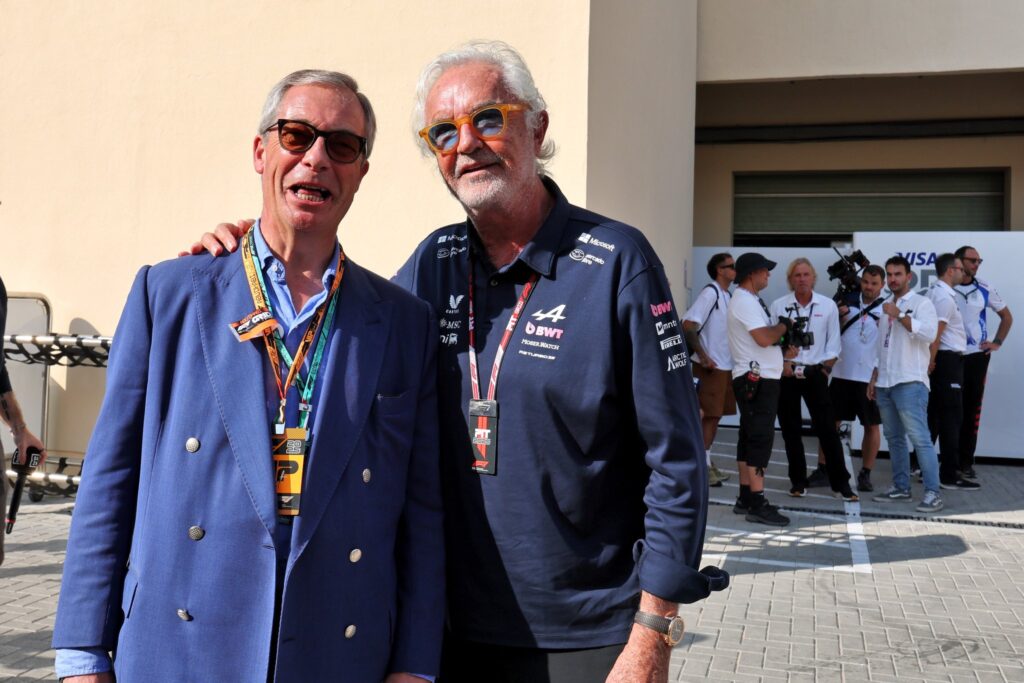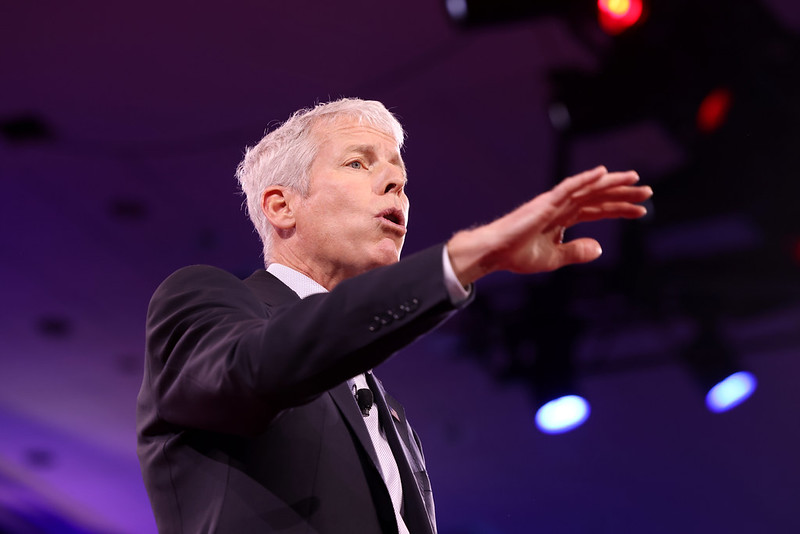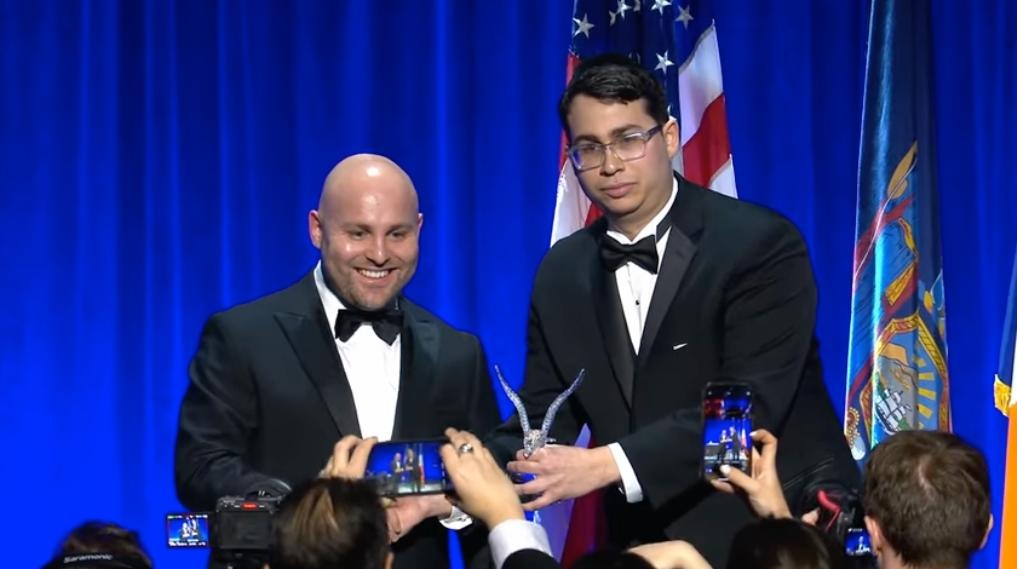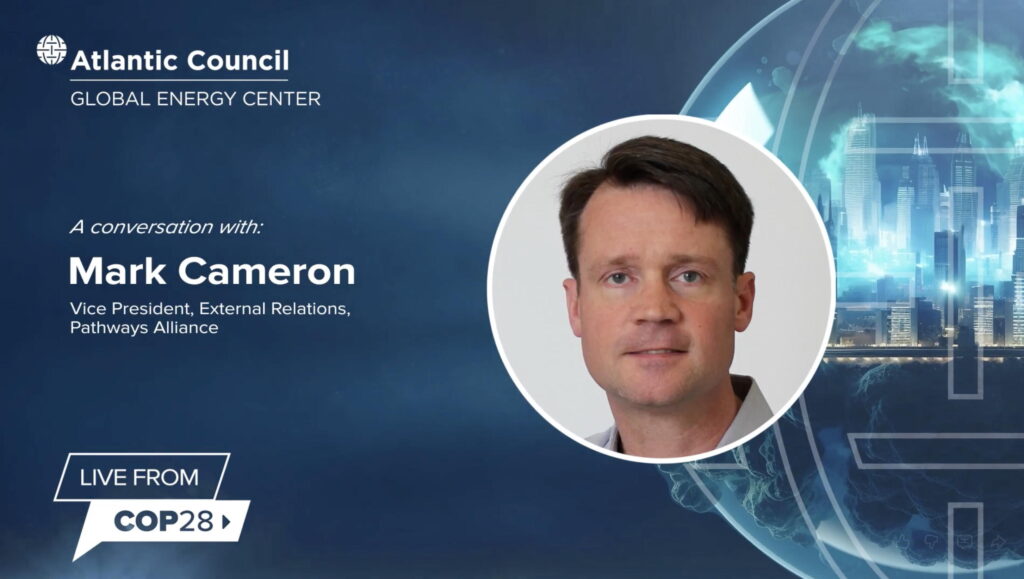Tom Tugendhat, who is running to be Conservative Party leader, recently called the UK’s 2050 net zero emissions target “not realistic” and has received donations from Tory peers with fossil fuel interests and a history of funding climate science denial.
Tugendhat, MP for Tonbridge and shadow security minister, is widely described as the “centrist” or “moderate” candidate vying to succeed current party leader Rishi Sunak.
But despite in 2020 having called climate change “one of the greatest challenges we face”, Tugendhat has repeatedly questioned the UK’s climate goals.
In an interview on GB News in July, Tugendhat was asked by presenter and former Conservative MP Jacob-Rees Mogg if he thought net zero by 2050 was realistic. He replied: “No. It’s not realistic. If you can show me the science that delivers it I’ll be fascinated, because I’ve never seen it. All I’ve seen is that as an aspiration.”
The Climate Change Committee (CCC), which advises the government, has a range of detailed policy scenarios for the UK to achieve net zero by 2050.
Subscribe to our newsletter
Stay up to date with DeSmog news and alerts
Tugendhat has also received support from donors with investments in fossil fuels, as well as those who have funded climate science denial.
The latest register of MPs’ interests shows that, in June during the general election campaign, Tugendhat received a gift of a “use of a car for campaign and other travel” worth £2,000 from Lord Michael Spencer, a major Tory donor and former party treasurer. Tugendhat also received £5,000 from Lord Spencer’s family office, IPGL, during the campaign.
As DeSmog has reported, Lord Spencer is the largest shareholder in Deltic Energy, which earlier this year received licences to explore the North Sea for oil and gas. He also holds shares in Pantheon Resources, a UK company exploring for oil in Alaska, and previously had a stake in the oil prospecting firm Cluff Energy Africa.
Billionaire Lord Spencer, who has donated £6 million to the Conservatives since 2005, previously told DeSmog that oil and gas investments make up less than two percent of his investment portfolio.
In addition, Tugendhat received £3,000 in December from Lord Michael Hintze, a Tory peer and donor who is one of the few known funders of the Global Warming Policy Foundation (GWPF), the UK’s main climate science denial group.
Lord Hintze, who has given more than £4 million to the Conservatives since 2002, has said he believes “there is climate change” caused “in part due to human activity over the past century”. However, he has said that “all sides must be heard” on climate change “to reach the right conclusion for society as a whole”.
Natalie Bennett, Green Party peer said: “Just two months on from the worst defeat in their entire history, you’d hope the Conservatives would be reflecting on why policies like U-turning on their climate commitments were so unpopular.
“If they elect a leader who claims that reaching net zero by 2050 ‘isn’t possible’, it will show they’ve learnt nothing, are completely out of touch with the British public and remain a threat to life on our planet.”
Tory MPs will begin voting next week to cut the list of six leadership candidates to four. DeSmog has previously reported that frontrunner Kemi Badenoch received £10,000 towards her campaign from Neil Record, chair of the GWPF’s campaign arm, Net Zero Watch.
Meanwhile, fellow right-wing candidate Robert Jenrick has repeatedly attacked net zero and has backed increased fossil fuel extraction, including the opening of new coal mines.
Tugendhat, Lord Spencer, and Lord Hintze were all approached for comment.
Tugendhat on Net Zero
Despite being a parliamentary member of the Conservative Environment Network (CEN), a caucus of MPs and peers “who are united around conservative environmentalist principles”, Tugendhat has supported policies that contravene the UK’s legally-binding net zero targets.
In his July interview with Rees-Mogg on GB News, Tugendhat defended the previous government’s support for new oil and gas extraction, saying: “Drilling our own oil in the North Sea is more carbon efficient than bringing it in from anywhere else.”
The International Energy Agency (IEA) has said that new fossil fuel projects are incompatible with limiting global warming to 1.5C – the goal established by the 2015 Paris Agreement.
The previous chair of the CCC has said that “UK oil and gas consumption needs to fall by over 80 percent to meet UK targets”, and that new fossil fuel exploration licences are “inconsistent with climate goals”.
Moreover, the claim that UK oil and gas has a lower carbon footprint than imports is “misleading” and can only be achieved “by comparing UK gas production to the very dirtiest gas imports”, according to the research and campaign group Uplift.
Tugendhat also reportedly suggested to The Telegraph last week that he would abandon the UK’s 2050 net zero target, before backing away from the remarks. “I am committed to working towards net zero by 2050 and the economic opportunity and energy security it will bring. However, the markets must take the lead,” he said.
In general, however, the Tory is striking an increasingly hostile tone on net zero. In July, Tugendhat posted on X (formerly known as Twitter):
The protection of our natural world is part of the reason I’m a Conservative.
— Tom Tugendhat (@TomTugendhat) July 12, 2024
But Net Zero cannot come at the expense of people’s jobs and livelihoods.
That’s just common sense.
This was not the first time Tugendhat has flip-flopped on net zero. During the 2022 Conservative leadership contest, he reportedly told a hustings event that he backed delaying the 2050 target.
Tugendhat later struck a different tone, saying he “agreed” with the target and that: “We keep talking about net zero as a cost – it is also a benefit. We could be imitating the Norwegians and actually making money from carbon capture.”
From 2018 to September 2022, Tugendhat was on the advisory board of Onward, an influential right-wing think tank that has received thousands in funding from oil and gas majors Shell, BP, and Equinor.
Between the 2019 general election and the start of the 2024 campaign, the Conservatives received £8.4 million from fossil fuel interests, highly polluting industries, and climate science deniers. DeSmog has mapped the extensive connections between the Conservative Party, right-wing think tanks, fossil fuel interests, and climate denial groups.
Subscribe to our newsletter
Stay up to date with DeSmog news and alerts






